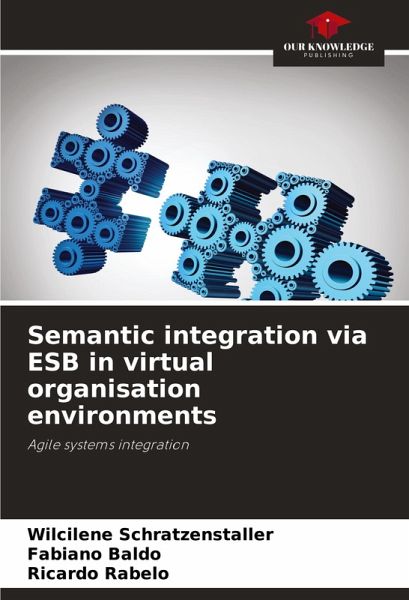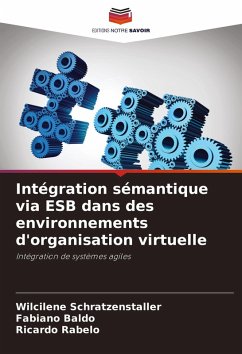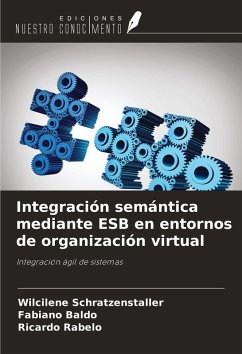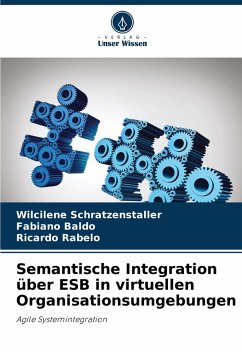
Semantic integration via ESB in virtual organisation environments
Agile systems integration
Versandkostenfrei!
Versandfertig in 6-10 Tagen
36,99 €
inkl. MwSt.

PAYBACK Punkte
18 °P sammeln!
In order to meet market demands, small and medium-sized companies have joined forces to share resources and competences. Among the existing forms of alliances, Virtual Organisation Creation Environments stand out. For them to fulfil their role, communication and information infrastructures are needed to enable integration between the systems of the participating companies. These infrastructures can be provided by service-orientated platforms. However, these are incomplete for operating distributed and collaborative businesses in a secure and coordinated manner. To meet these needs, the concept...
In order to meet market demands, small and medium-sized companies have joined forces to share resources and competences. Among the existing forms of alliances, Virtual Organisation Creation Environments stand out. For them to fulfil their role, communication and information infrastructures are needed to enable integration between the systems of the participating companies. These infrastructures can be provided by service-orientated platforms. However, these are incomplete for operating distributed and collaborative businesses in a secure and coordinated manner. To meet these needs, the concept of the Enterprise Service Bus (ESB) has emerged, which are standards-based integration platforms that combine messaging, web services, transformations and intelligent data routing. ESBs lack semantic support that offers flexibility and autonomy in process mapping and integration. Therefore, the aim of this project is to introduce semantics to the ESB, using ontologies, in order to enable itto offer the flexibility of process mapping and integration required in these environments.














